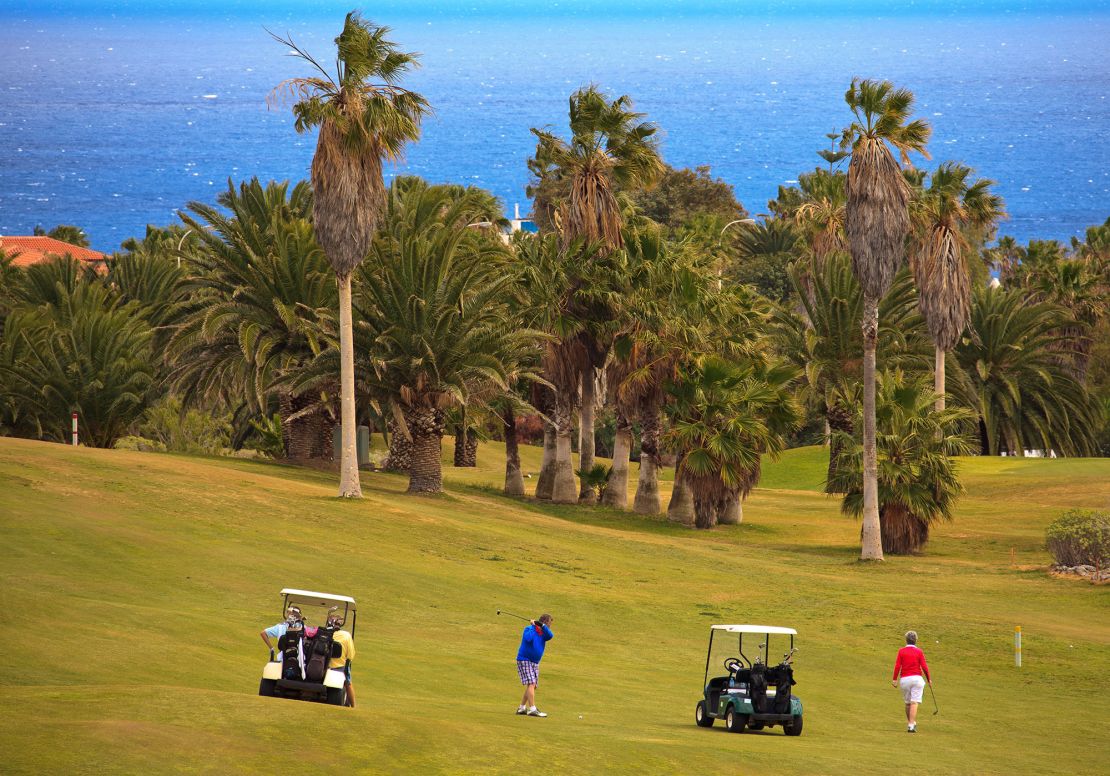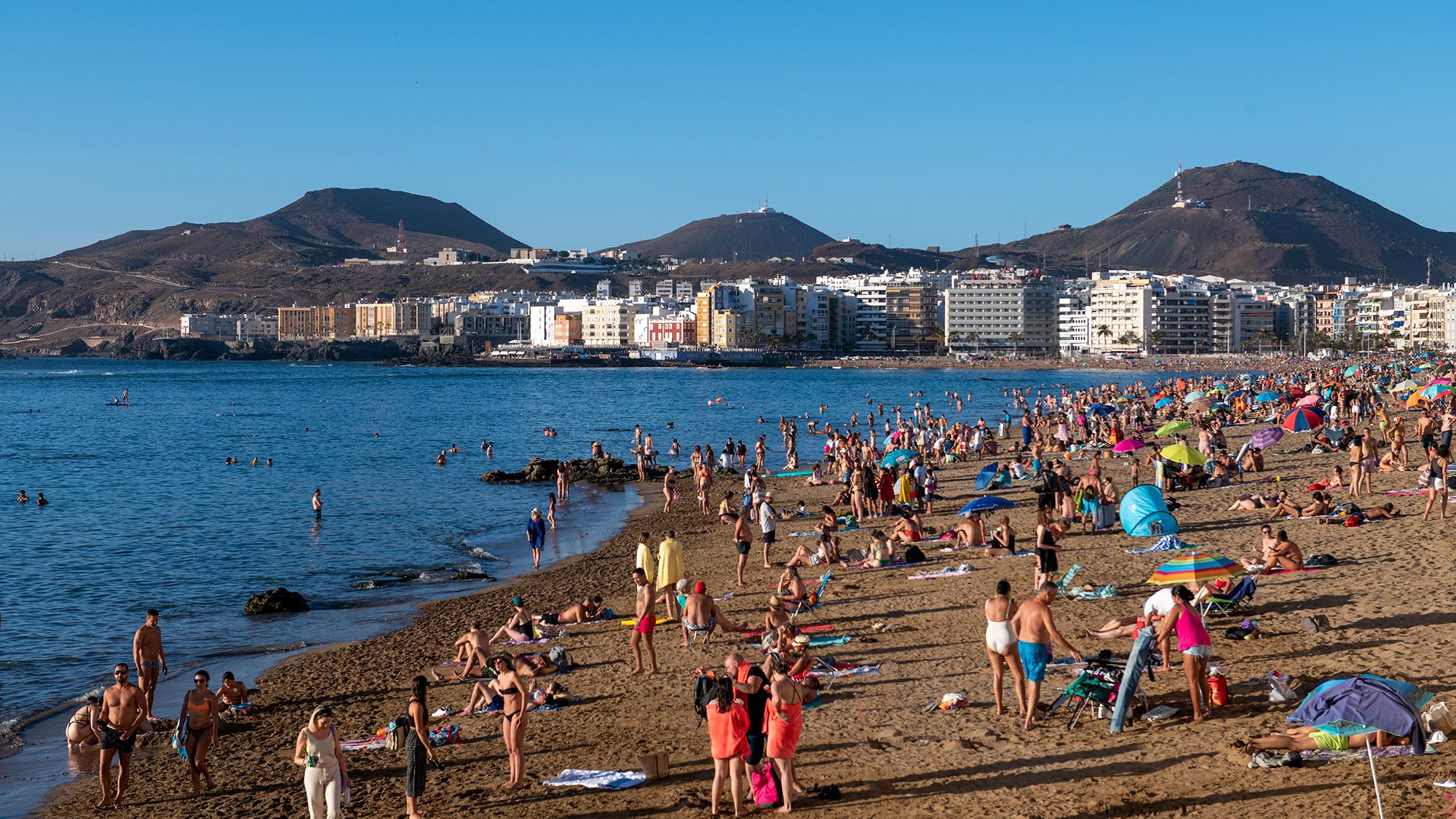Locals in the Canary Islands are mobilizing to protest against excessive tourism, blaming visitors for pricing them out of their homes and causing environmental damage.
The Spanish archipelago, which sits in the Atlantic Ocean off the west coast of Africa, has long been a popular holiday destination for its temperate year-round climate.
However tourist numbers have exploded from 11.5 million per year to around 16 million per year in the last decade, according to local environmental organization Fundación Canarina, and many locals are now ready to take action to protest what they say is the overexploitation of the islands.
One group named Canarias Se Agota urged support for a hunger strike starting Thursday and called on people to form a human chain to show their support.
“Every person who joins the human chain sends a strong message to the government: The Canary Islands are not willing to continue sacrificing their future,” it said in a post on Facebook published Wednesday.
Local conservation group Asociación Tinerfeña de Amigos de la Naturaleza (ATAN) is also promoting a protest on April 20, citing the “environmental and social collapse that we are experiencing.”
Environmental group Ecologists in Action will be part of the same protest, blaming these issues on “completely unsustainable tourism,” with holiday lets and second homes pricing locals out of the housing market.
The group also blames local authorities for approving large tourist developments that worsen existing issues, such as increasing water shortages.
Tourism infrastructure such as swimming pools and golf courses use vast amounts of water, which is increasingly scarce as rainfall decreases and dry periods become longer due to climate change, the group said in a statement.
“Next Saturday April 20 we will take to the streets to demand what should be common sense: to take control of a situation which is drowning us and expelling us from our home,” reads the statement.
“It’s time to demand a change in approach and to shout, once more, from all of the islands, that the Canaries have a limit.”
Surging visitor numbers

In response, local government officials have proposed a dialogue between politicians, academics and citizens to design a tourism strategy linked to social, environmental and economic sustainability.
“The objective is to create a committee of experts to establish common guidelines,” said Jéssica de León, minister for tourism and employment in the Canary Islands regional government, in a statement published Tuesday.
De León has also proposed a bill that would introduce new rules on holiday lets.
Concerns about the impact of tourism are not unique to the Canary Islands.
Many popular tourist hot spots around the world have experienced record visitor numbers recently as the travel industry has roared back from a pandemic-induced downturn.
Such surges may be sweet for local economies and hospitality businesses’ bottom line, but they also come with notable downsides: increased noise, pollution, traffic and strain on resources; a lower quality of life for locals; and a diminished visitor experience, among others.
Not surprisingly, many tourist magnets have created initiatives and restrictions aimed to combat overtourism issues, including new or increased tourist taxes, campaigns aimed at discouraging problematic visitors and attendance caps at popular attractions.
One example is the Spanish city of Barcelona, which was among the first European cities to ban new hotels in its city center and restrict short-term room rentals, as well as closing a port terminal to cruise traffic in October 2023.






